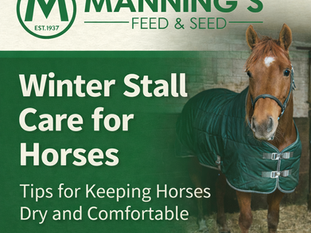
Molting Season: How to Care for Your Chickens During Feather Loss
Jan 20, 2025
3 min read
0
42
0

Understanding Molting: What to Know About Chicken Feather Loss
If you own chickens, you may notice your birds looking a little scruffy at certain times of the year. Don’t worry; it’s likely part of a natural process called molting. Molting is an essential phase in a chicken’s life cycle, where they shed old feathers and grow new ones. While it’s entirely normal, understanding what molting entails and how to care for your flock during this time is crucial for their health and well-being.
What is Molting?
Molting is the process of feather replacement in chickens. This typically occurs once a year, usually in the late summer or early fall, as chickens prepare for colder weather. Feathers can become worn and damaged over time, so molting ensures they’re equipped with a fresh, insulating coat for winter.
During molting, chickens lose feathers in stages to avoid being completely bare. This process can last anywhere from 8 to 16 weeks, depending on the bird and environmental factors.
Why Do Chickens Molt?
Molting is a natural renewal process with several benefits:
Thermoregulation: Fresh feathers provide better insulation against the cold.
Improved Flight and Protection: New feathers are more functional for flight (if necessary) and help protect against environmental factors like rain or predators.
General Health: Shedding old feathers helps rid chickens of pests like mites or lice that may have accumulated.
Signs Your Chickens Are Molting
How can you tell if your chickens are molting? Look out for these signs:
Feather Loss: Patches of missing feathers, especially around the neck, back, and wings.
Decreased Egg Production: Molting requires a lot of energy, so hens often stop or significantly reduce egg laying.
Dull Appearance: Feathers may look frayed or less vibrant as they are replaced.
Behavioral Changes: Some chickens may seem more reserved or less active due to the physical stress of molting.
Caring for Your Chickens During Molting
Molting can be a stressful time for chickens, so extra care and attention can help keep your flock healthy and comfortable. Here are some tips:
1. Provide High-Protein Feed
Feathers are made primarily of protein, so molting chickens need a diet rich in this nutrient. Switch to a higher-protein feed or supplement their diet with treats like mealworms, scrambled eggs, or sunflower seeds. At mannings feed and seed we offer Kalmbach full plume chicken feed, which also helps chickens during their time of molting.
2. Minimize Stress
Avoid handling your chickens too much during this time, as they may feel sore or irritable. Keep their environment calm and predictable to reduce stress.
3. Ensure Access to Clean Water
Hydration is always important, but especially during molting. Fresh, clean water should be available at all times.
4. Check for Pests
Feather loss can sometimes be caused by mites or lice rather than molting. Inspect your flock regularly to rule out pest infestations and treat promptly if needed.
5. Maintain a Comfortable Coop
Make sure your chickens have a clean, dry coop with plenty of space to rest. Adding extra bedding can help them stay warm as they grow new feathers.
When to Be Concerned
While molting is a natural process, there are times when feather loss might indicate other issues:
Persistent Bald Spots: If feathers don’t regrow after several weeks, there could be an underlying problem.
Pecking or Aggression: Feather pecking can occur due to overcrowding, boredom, or nutritional deficiencies.
Health Issues: If your chickens seem lethargic, lose weight, or show other signs of illness, consult a veterinarian.
Conclusion
Molting is a normal and necessary part of a chicken’s life, but it can be challenging for both the birds and their owners. By understanding the molting process and providing the right care, you can help your flock stay healthy and happy as they transition to their fresh new feathers. With a little extra attention, your chickens will emerge from the molting season looking better than ever!





